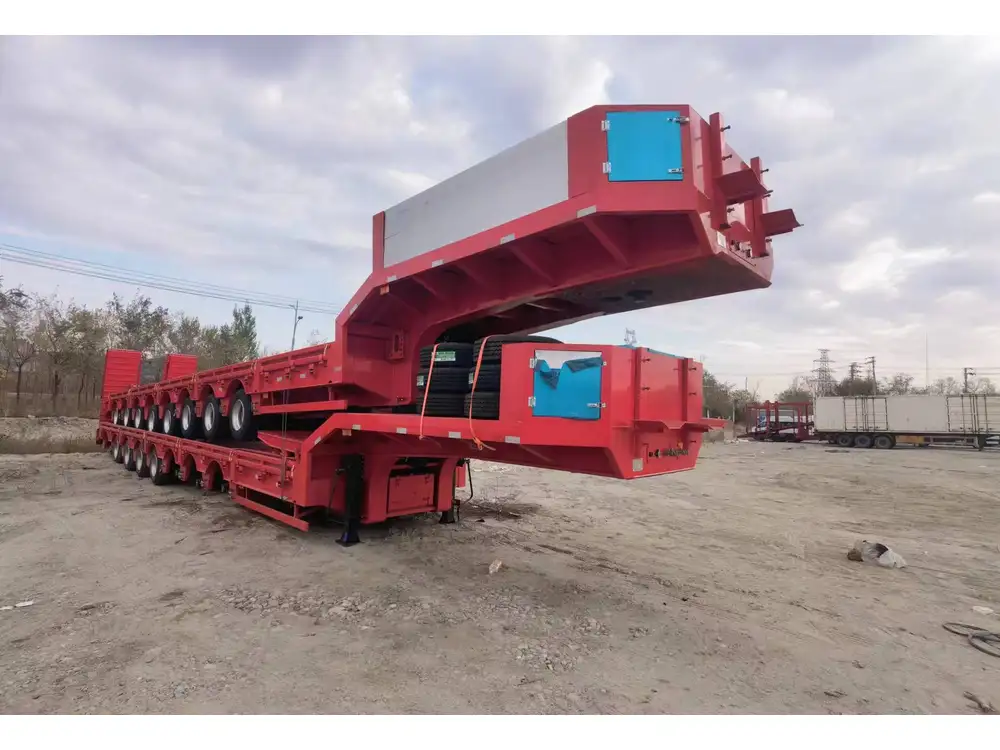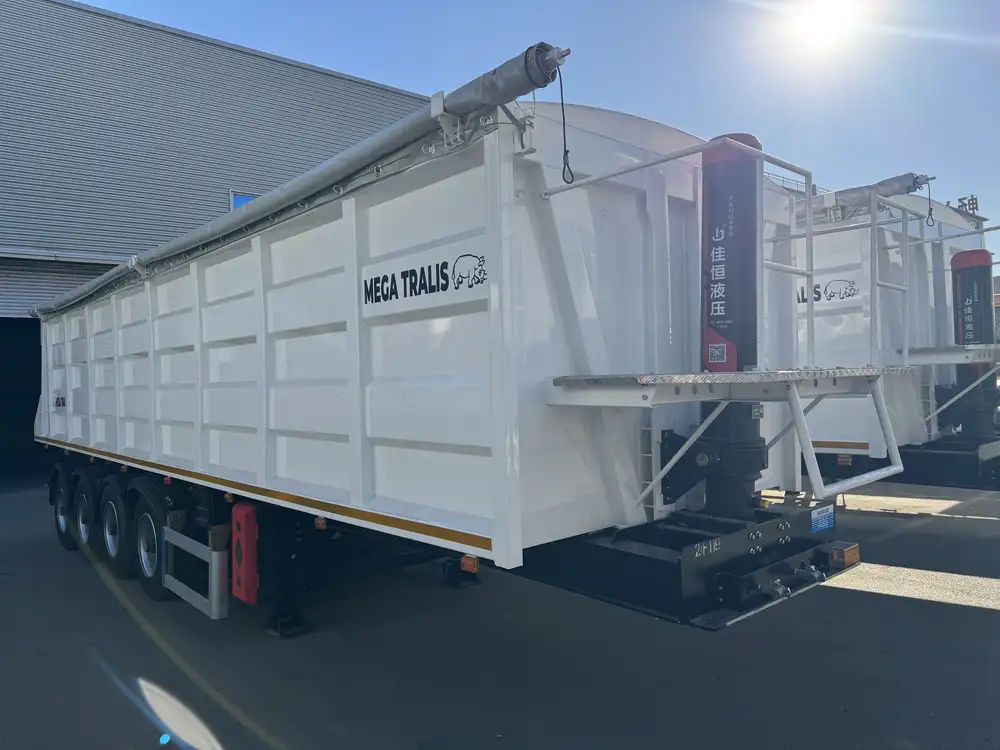As the demand for efficient transport solutions continues to rise, knowing where to rent a flatbed trailer becomes crucial for both individuals and businesses. Whether you require it for moving heavy equipment, transporting materials for a construction project, or managing logistics, flatbed trailers provide an unparalleled level of versatility. This guide will explore everything you need to know, from the different types of flatbed trailers available to strategic choices for rental locations.
Understanding Flatbed Trailers
What is a Flatbed Trailer?
Flatbed trailers, characterized by their flat, open platforms without sides or a top, are designed for transporting large and heavy cargo. They offer advantages over enclosed trailers, such as:
- Easy Loading and Unloading: The absence of walls or a roof enables the use of forklifts or cranes, facilitating the handling of oversized loads.
- Versatility: Ideal for transporting machinery, vehicles, and construction materials.
- Accessibility: The open design allows for multi-directional loading and unloading, enhancing efficiency.

Types of Flatbed Trailers
Flatbed trailers come in various configurations to cater to different needs. Here’s a detailed breakdown:
| Type | Description | Use Cases |
|---|---|---|
| Standard Flatbed | Regular flatbed without additional features | General cargo transport |
| Drop Deck Trailer | Lowered deck height for taller loads | Heavy equipment & machinery |
| Step Deck Trailer | Features two deck levels to accommodate different loading heights | Specialized cargo & machinery |
| Flatbed Gooseneck | Coupling type that provides greater maneuverability | Long loads requiring stability |
| Conestoga Trailer | Combines flatbed features with a rolling tarp system | Versatile loading conditions |
Finding a Rental Location
Where Can You Rent a Flatbed Trailer?
Renting a flatbed trailer is easier than one might think. Here’s a detailed exploration of the avenues available to you:
Local Equipment Rental Companies:
- Often the best first stop. Many local businesses cater to temporary equipment rental, including flatbed trailers.
- Pros: Personalized customer service and immediate inquiry responses.
- Cons: Limited availability of specialized models.
National Rental Chains:
- Companies like U-Haul, Penske, and Ryder offer a range of trailer types, including flatbeds.
- Pros: Reliable and established companies with warranties and numerous locations.
- Cons: Higher rental prices and potential fees for mileage or damage.
Online Trailer Rental Platforms:
- Websites such as Peer-to-Peer rental platforms (e.g., Turo for vehicles and similar for trailers).
- Pros: Often flexible pricing and availability.
- Cons: Varying quality of service and potential risks associated with individual renters.
Specialized Flatbed Trailer Rental Companies:
- Some companies specialize exclusively in trailer rentals, providing a broad range of options.
- Pros: Deep knowledge of the industry and well-maintained vehicles.
- Cons: May be less widespread geographically.

Key Considerations When Choosing a Rental Location
- Proximity: Choose a location close to your pickup and drop-off areas to minimize travel time and costs.
- Fleet Size and Variety: Opt for companies that offer a wide range of flatbed models, ensuring that you can find the right fit for your needs.
- Rental Costs: Compare the prices between different locations and consider additional fees like mileage, insurance, and deposits.
- Reviews and Reputation: Research customer feedback to gauge reliability. Online reviews and business ratings can provide valuable insight.
Preparing for Your Rental
Necessary Documents and Requirements
Before renting a flatbed trailer, ensure you’re prepared with the necessary paperwork and understand the rental terms:
- Driving License: A valid driver’s license is typically required, especially for larger trailers that may have added restrictions.
- Proof of Insurance: Many rental companies will ask for proof of insurance either on the vehicle itself or a rider that covers the trailer.
- Rental Agreement: Read the terms carefully to understand what is included and excluded in your rental (insurance, maintenance, roadside assistance, etc.).

Inspection Checklist
Before driving away with a rented flatbed trailer, perform a thorough inspection:
- Check the Tires: Look for adequate tread depth and proper inflation.
- Inspect the Lights: Ensure all lights (brake, turn signals) are operational.
- Examine the Frame: Look for rust, cracks, or signs of wear and tear.
- Test the Couplings: Check that hitches connect securely and are in good condition.
Loading Considerations
Loading a flatbed trailer properly is crucial for safety and efficiency. Here are key practices:
- Weight Distribution: Balance the load evenly, placing heavier items towards the front.
- Securing the load: Use chains, straps, and tarps as necessary to secure the cargo. Make sure to follow state laws regarding load securing.
- Overhanging Loads: Be aware of regulations regarding overhanging loads which may require additional signage or warning lights.
Cost of Renting a Flatbed Trailer
Understanding the rental costs can help you budget effectively. The cost of renting a flatbed trailer varies based on several factors:

Rental Pricing Structure
- Daily Rates: Typically range from $40 to $150, varying based on trailer type, condition, and rental company policies.
- Mileage Charges: Many companies implement a per-mile fee once a certain distance is exceeded.
- Deposit Requirement: A security deposit, ranging from $100–$300, is commonly required to cover potential damages or fees.
Additional Fees
- Insurance Costs: Purchasing additional insurance can add to your total.
- Fuel Costs: Remember to factor in fuel consumption, especially for longer trips.
- Maintenance Charges: Check if the rental agreement includes maintenance; otherwise, you might incur fees if issues arise.
Best Practices for Returning a Flatbed Trailer
Returning the flatbed trailer safely and on time is essential to avoid additional costs and maintain a positive rental experience:
- Fuel Level: Ensure the trailer is returned with the same fuel level as when picked up to avoid extra charges.
- Cleanliness: Remove debris and ensure the trailer is clean; some companies charge cleaning fees.
- Report Issues Promptly: If you notice any damage incurred during your rental period, report it immediately to avoid disputes upon return.

Conclusion
Navigating the landscape of renting a flatbed trailer is intricate but manageable with the right knowledge and preparation. By understanding your options, knowing where to find them, preparing adequately, and adhering to best practices, you’ll ensure that your trailer rental experience is smooth, efficient, and cost-effective. Whether for commercial purposes or personal projects, flatbed trailers serve as invaluable tools in transportation logistics. Equip yourself with the necessary information to make the most informed decision, and elevate your trailer rental experience to new heights.



